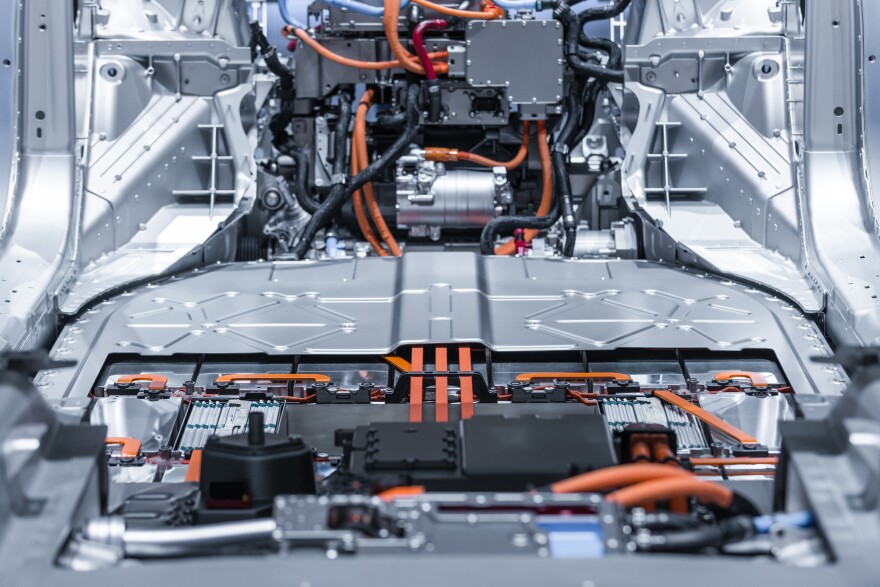Michigan companies in Flint, Muskegon, Wayne County, and the Upper Peninsula have won four grants from the Biden-Harris administration's Bipartisan Infrastructure Law to boost domestic production of advanced battery components.
Secretary of Energy Jennifer Granholm said the grants will help secure the future of the electric vehicle industry in the U.S. In all, the $3 billion in grants will fund 25 projects in 14 states.
"We as a nation — and Michigan knows this better than anyone — have sat idly by while China dominated the supply chain for batteries for electric vehicles," Granholm said in an interview with Michigan Public. "So the Biden-Harris administration has said, no. We're going to put a stop to that."
Michigan Congresswoman Debbie Dingell, a Democrat, joined the call. She said the U.S. learned during the pandemic that "just in time" delivery was not the good idea it once seemed.
"We're bringing our supply chain back home," Dingell said. "We have to keep the mobility, the transportation sector in Michigan, in the United States, at the forefront of the global marketplace."
Granholm said the awarding of the federal grants took into account the fact that Governor Gretchen Whitmer and the Michigan Economic Development Corporation pledged state support for the four companies.
Cabot Corporation will receive up to $50 million to develop a new U.S.-based manufacturing facility to produce battery-grade carbon nanotubes and conductive additive dispersions — materials critical to the domestic lithium-ion battery supply chain for electric vehicles and the electrical grid. The new facility will be based in Wayne County.
The REV Nickel Project and Revex Technologies will receive an award of up to $145 million to produce nickel concentrate and other critical minerals from metal bearing waste streams, including from the Eagle Mine in Michigan's U.P., as well as from spent lithium-ion batteries.
NanoGraf, an advanced silicon anode battery material company, has been awarded a $60 million dollar grant to produce silicone anode material at an existing manufacturing facility in Flint. At full capacity, the company said the facility will produce 2,500 tons of the material, enough to supply 1.5 million electric vehicles per year.
Mitra Chem will be awarded $100 million from the Infrastructure Act funds to establish a cutting-edge battery material manufacturing facility in Muskegon. The site is described as the first mass production facility for lithium iron phosphate cathodes — a key part of high capacity EV batteries — in North America.





